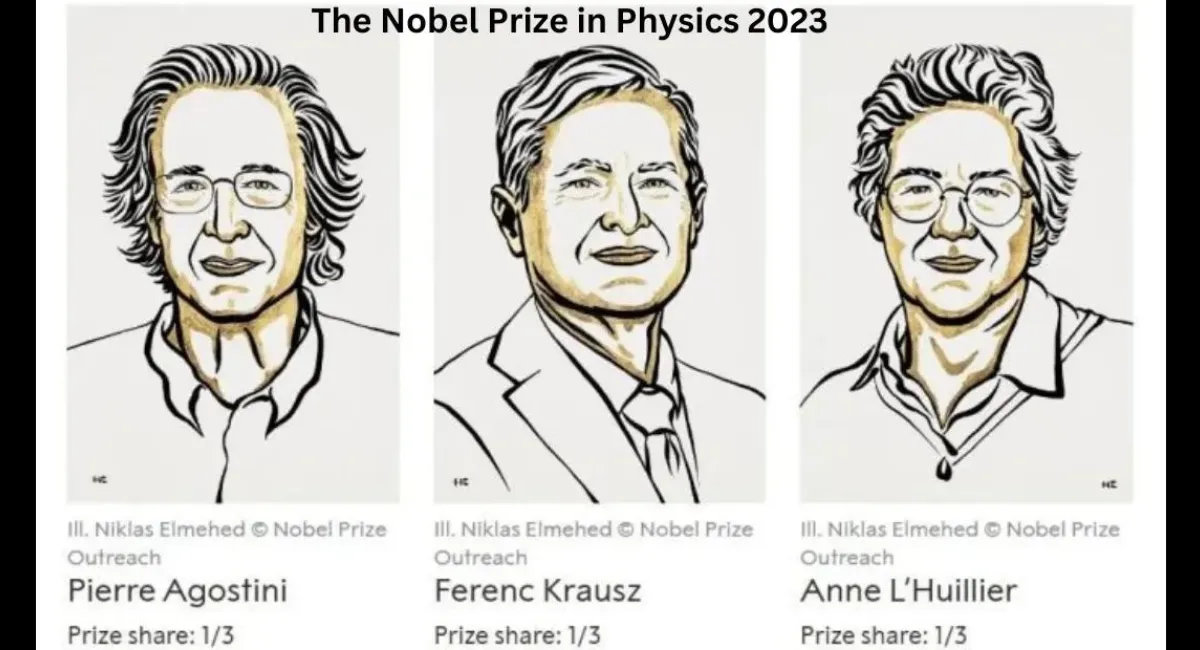Nobel Prize 2023: Pierre Agostini, Ferenc Krausz, Anne L’Huillier Win 2023 Nobel in Physics

Nobel Prize 2023: Scientists Pierre Agostini, Ferenc Krausz, and Anne L’Huillier on October 3, were jointly awarded the 2023 Nobel Prize in Physics for using pulses of light to study the behavior of electrons.
The prize-awarding academy said their studies had given humanity new tools for exploring the movement of electrons inside atoms and molecules.
Changes in electrons occur in a few tenths of an attosecond – a unit so short that there are as many attoseconds in one second as there have been seconds since the birth of the universe. Announced on consecutive weekdays in early October, the physics prize announcement will be followed by ones for chemistry, literature, peace and economics, the latter a later addition to the original line-up.
Also read: World Bank: India’s 2023-24 GDP Growth Stays At 6.3%
It was a happy coincidence, Frenec Krausz was at the Max Planck Institute in Garching on October 3, when he got “the call” to say he was one of three winners of the 2023 Nobel Prize in Physics. The institute was hosting an open house and Krausz was to give a talk on his work.
Instead, the Hungarian-born director at Max Planck Institute of Quantum Optics got the news that he, along with Pierre Agostini and Anne L’Huillier had won the award for creating incredibly short pulses of light that can capture processes inside atoms and molecules.
The call came at 11 in the morning and Krausz said he had been trying to work out if he was dreaming or not ever since. After thanking his wife and family, as well as his primary school teachers, for helping him on his path, Krausz said his thoughts were predominantly with all his colleagues who were involved in his research.
The prize, which was raised this year to 11 million Swedish crowns (about $1 million), is awarded by the Royal Swedish Academy of Sciences. Scientist Anne L’Huillier said on October 3 that she looked forward to developing her research further after being awarded the 2023 Nobel Prize in Physics.
L’Huillier won the prize alongside French compatriot Pierre Agostini and Hungary-born Ferenc Krausz for their work which could advance medical diagnostics and electronics. Although originally from France, L’Huillier conducts her research at Lund University in Sweden.
She revealed that she received the news of her award while in the midst of delivering a lecture, marking her as only the fifth woman to secure a Nobel Prize in Physics.